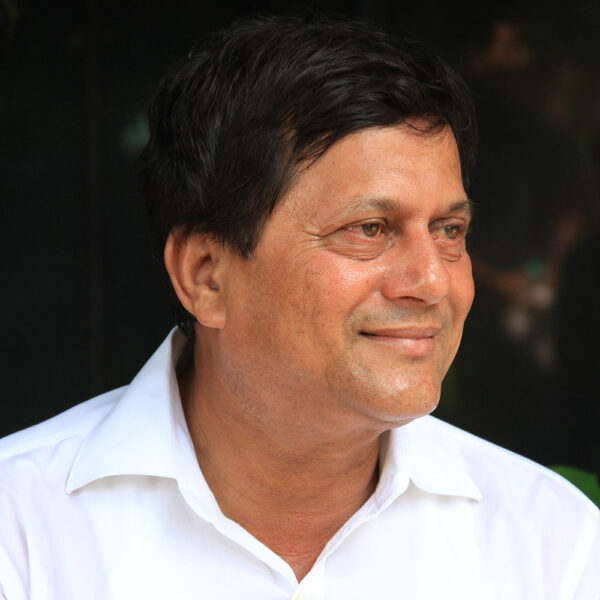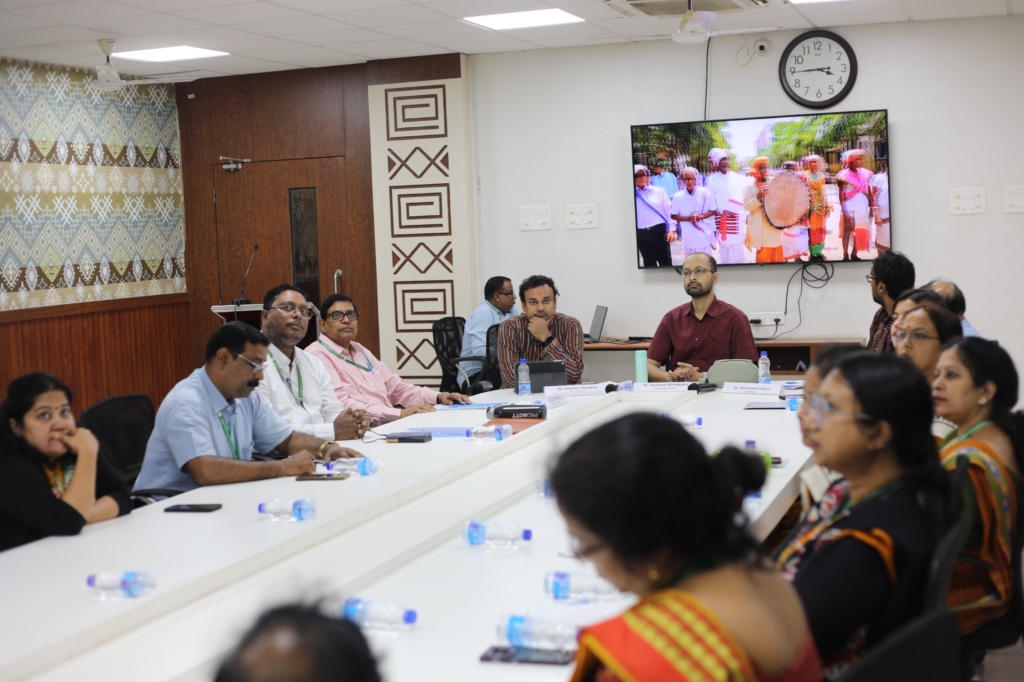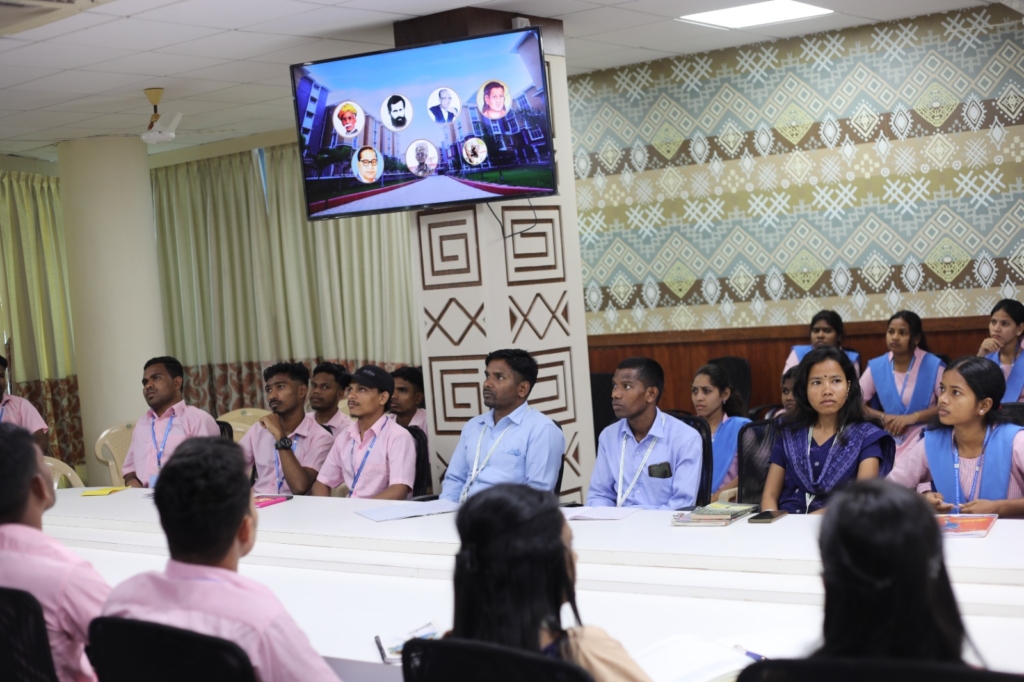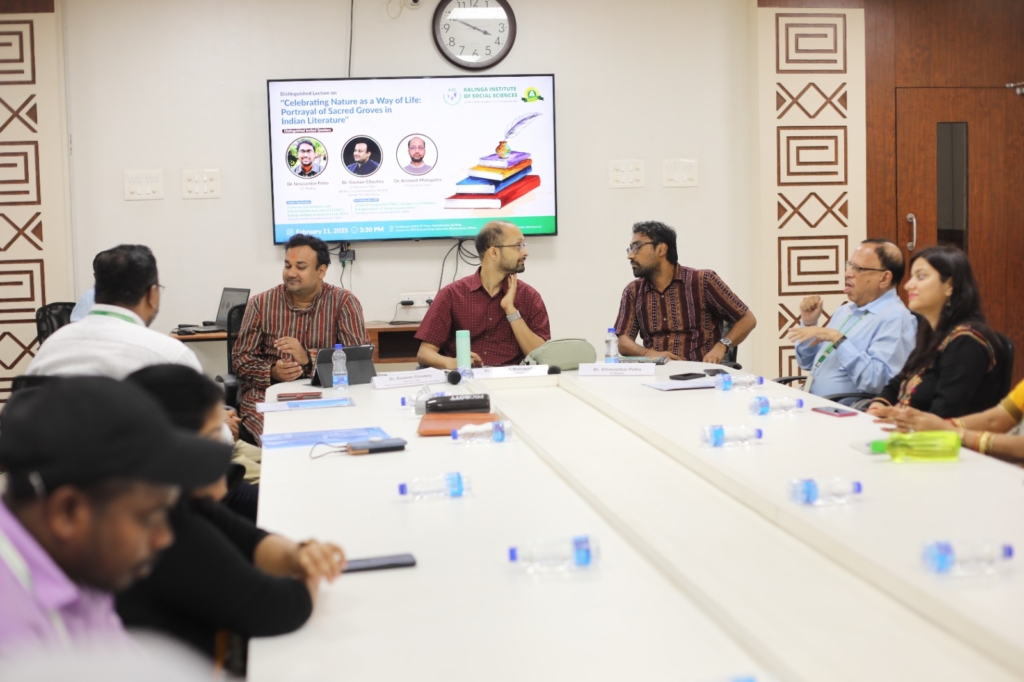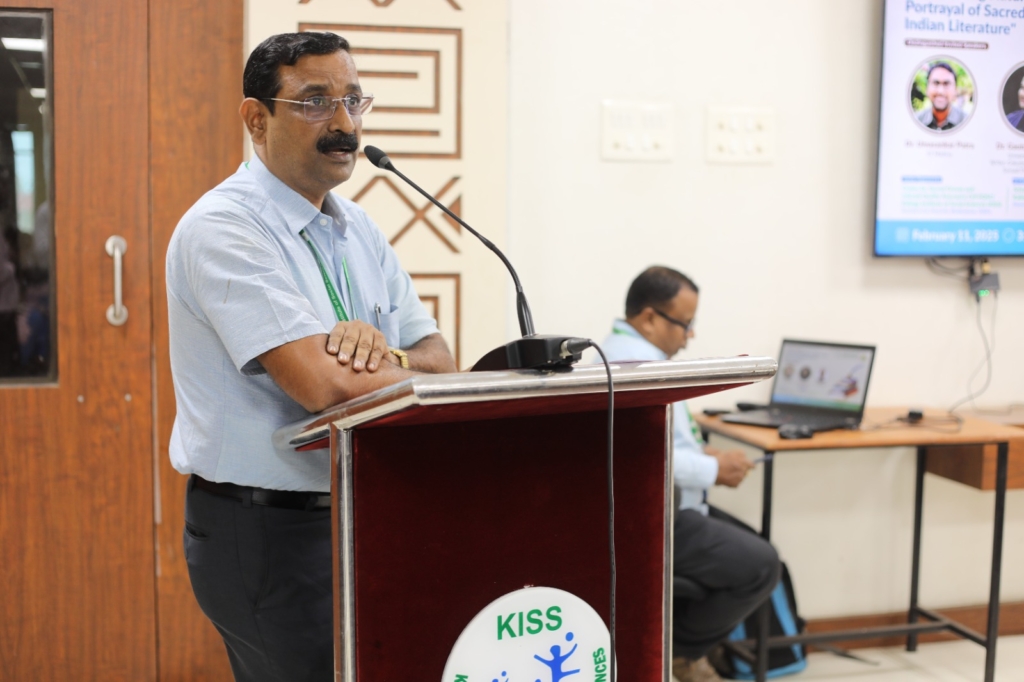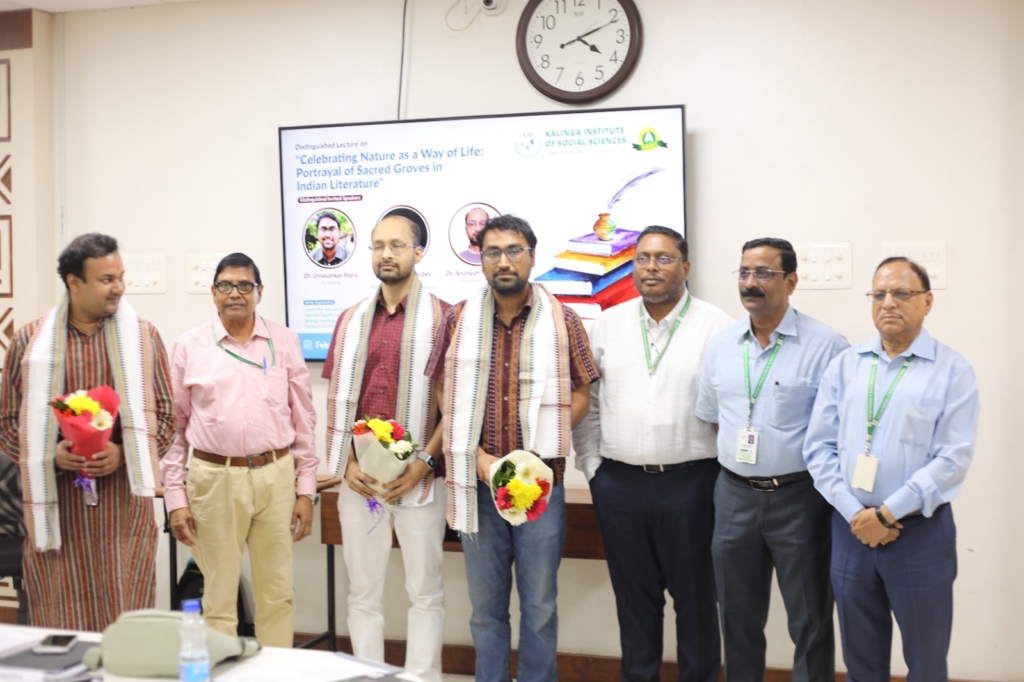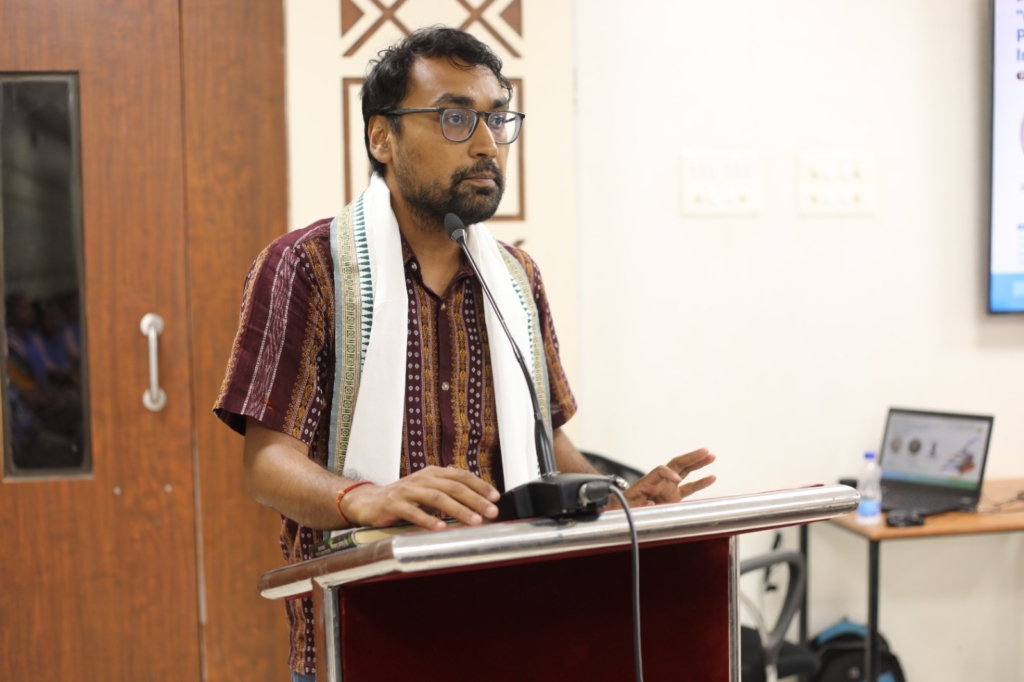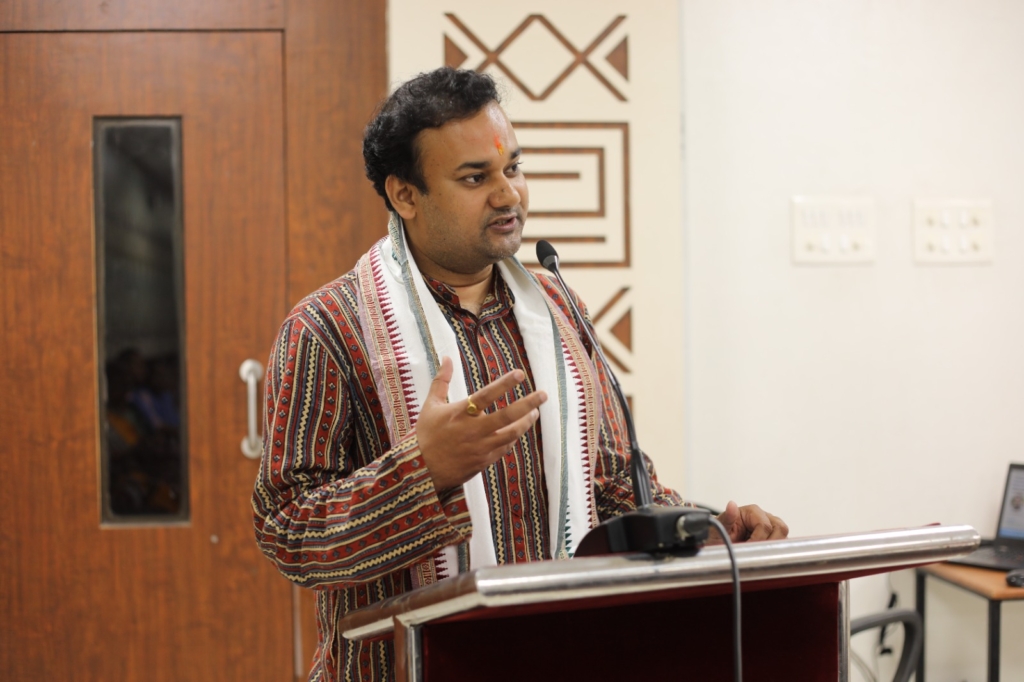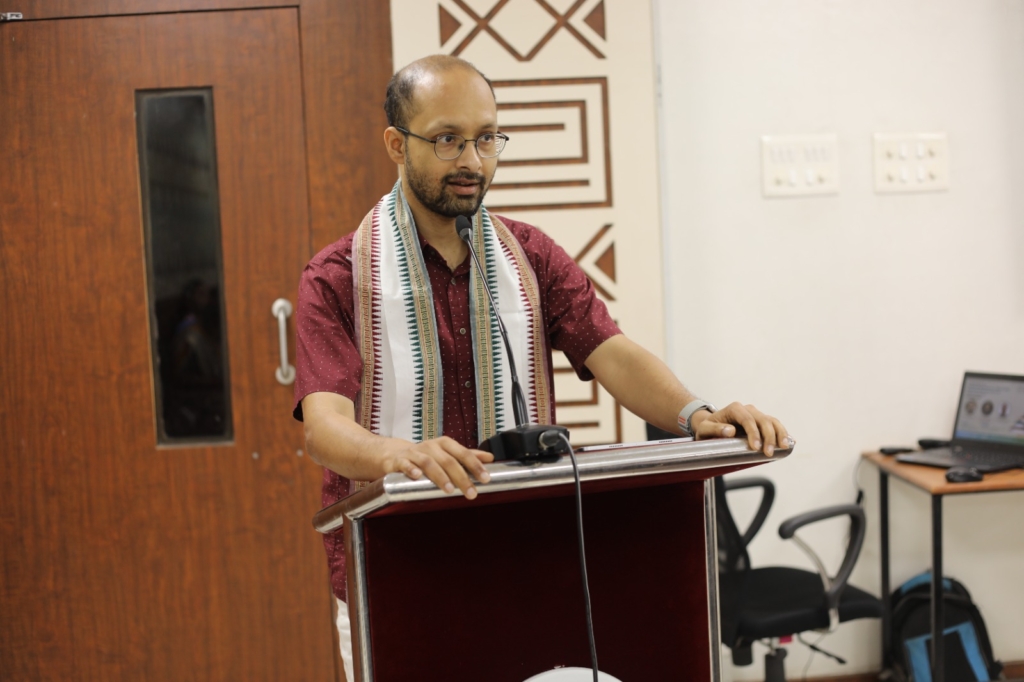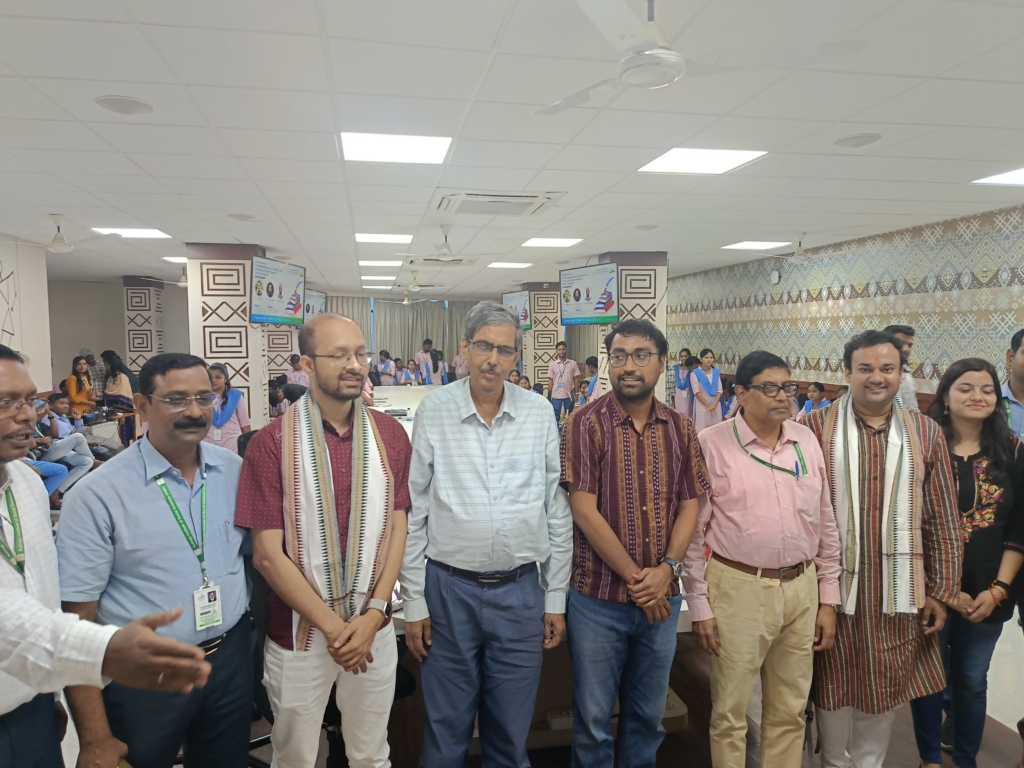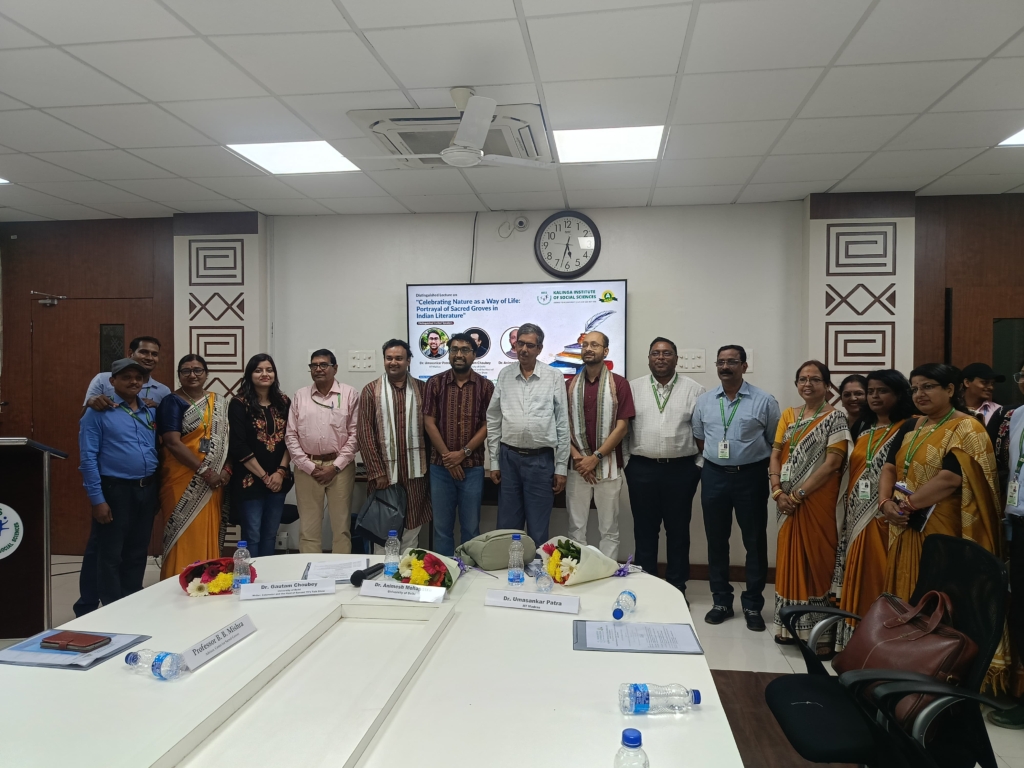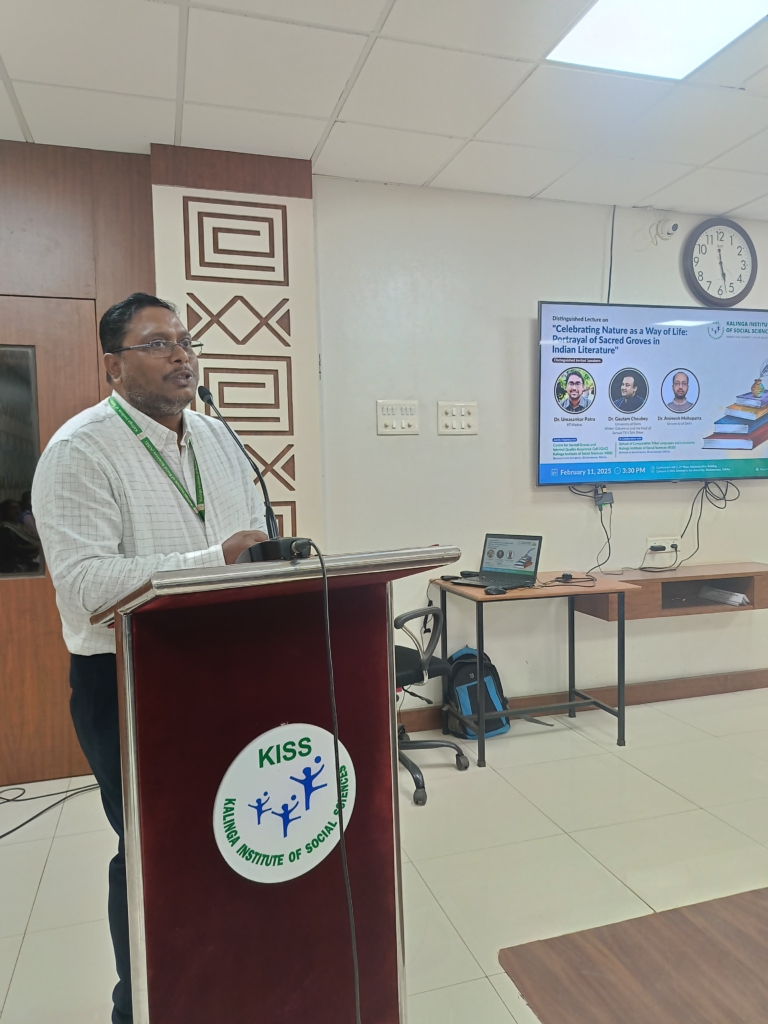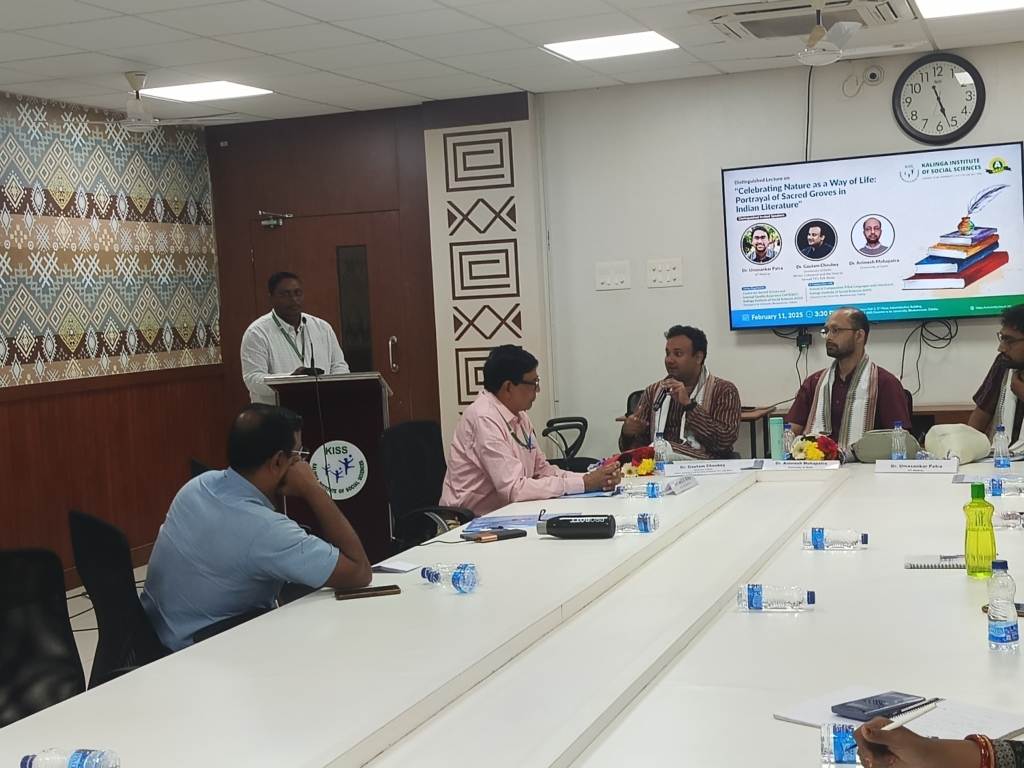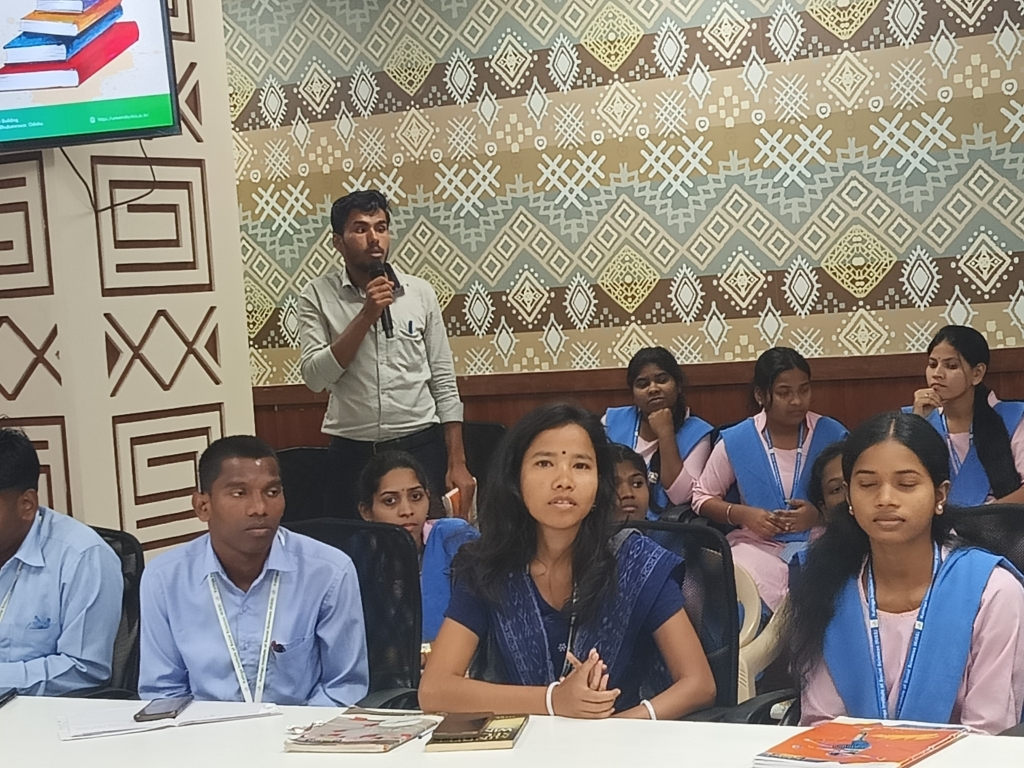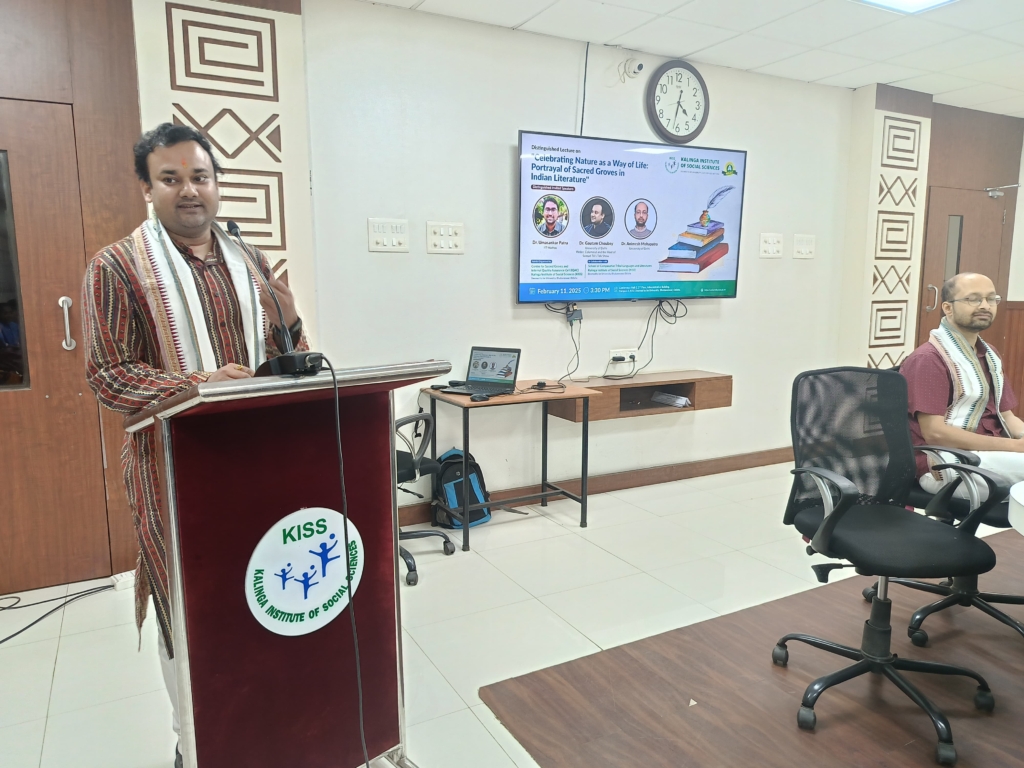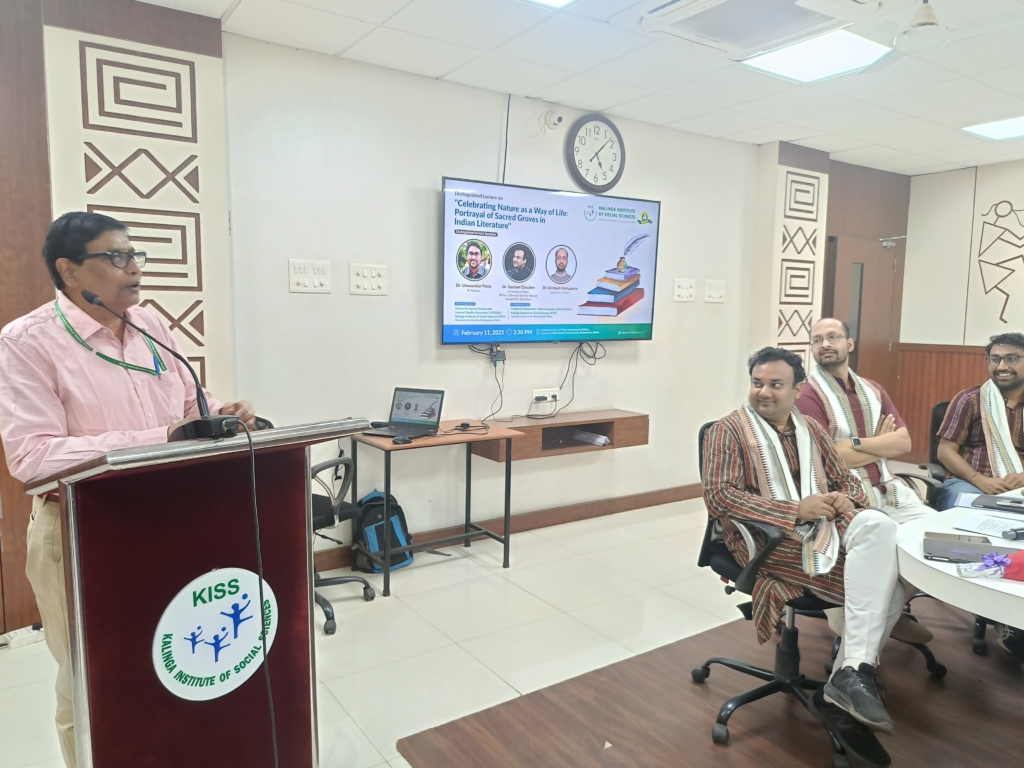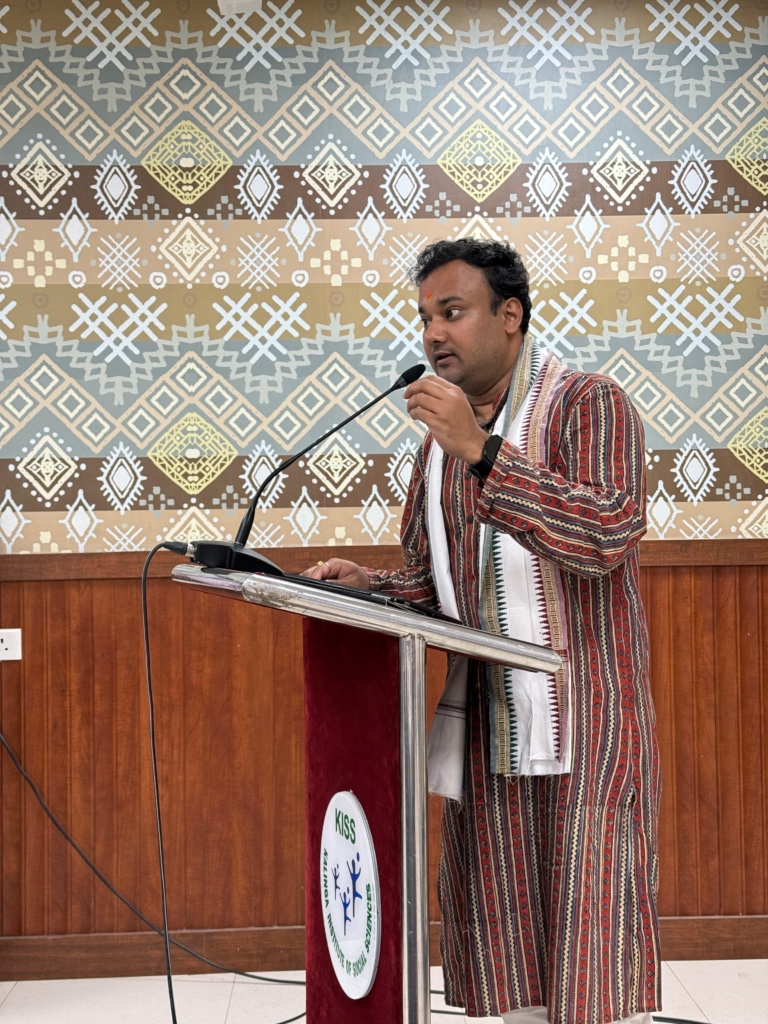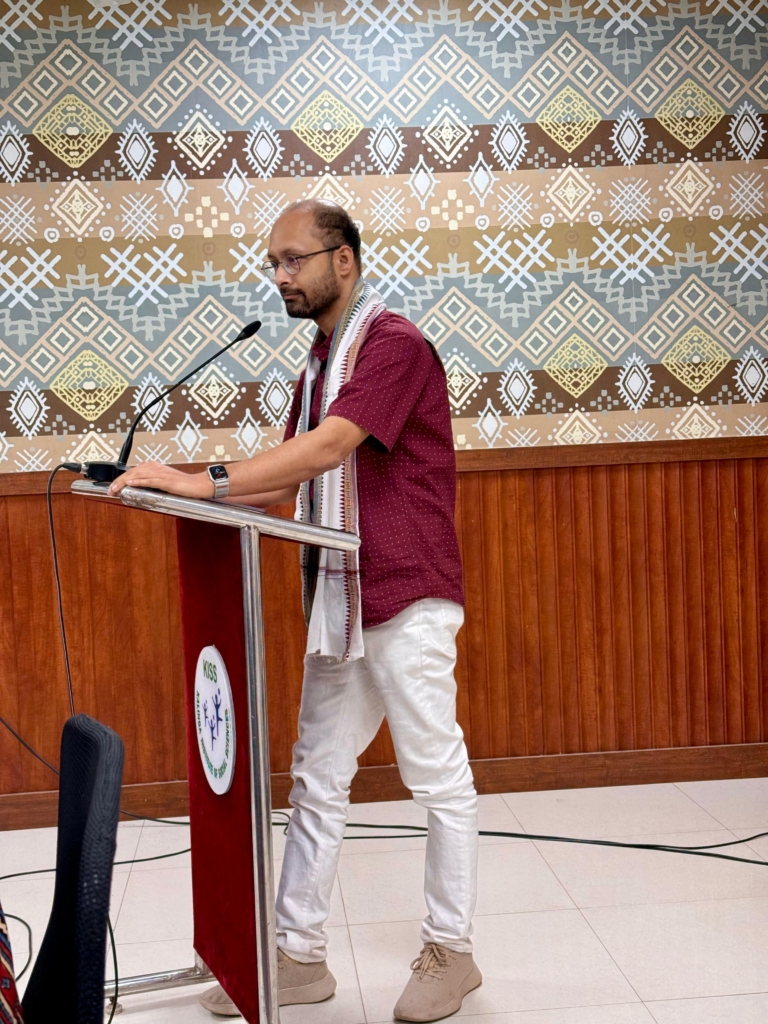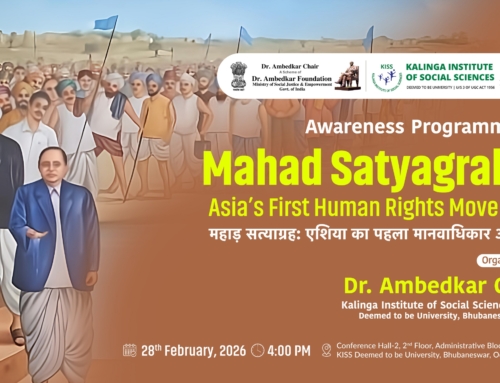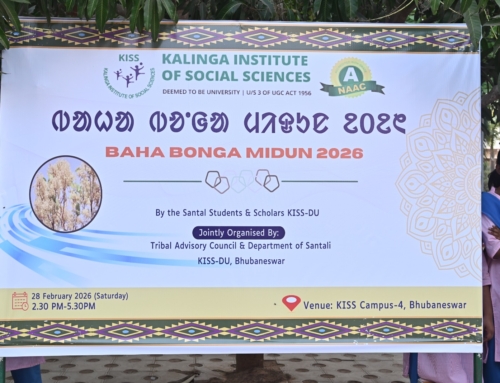The Kalinga Institute of Social Sciences (KISS) Deemed to be University organized a distinguished invited lecture on “Celebrating Nature as a Way of Life: Portrayal of Sacred Groves in Indian Literature” on 11th February 2025. This lecture was jointly organized by the Centre for Sacred Groves and the Internal Quality Assurance Cell in collaboration with the School of Comparative Tribal Languages and Literatures, KISS-DU. Dr.Umasankar Patra, Assistant Professor of English, Department of Humanities and Social Sciences, IIT Madras, Dr. Gautam Choubey, Assistant Professor of English, ARSD College, University of Delhi and Writer, columnist and the host of Sansad TV’s talk show and Dr.Animesh Mohapatra, Associate Professor of English, Delhi College of Arts and Commerce, University of Delhi graced the occasion as esteemed resource persons.
The meeting commenced with Dr. Manoj Kumar Behera providing a preliminary understanding of the distinguished lecture series. As the Centre Head for the Centre for Sacred Groves at KISS-DU, Dr. Behera outlined the objectives and significance of the event. The Dean of SCTLL, Dr. Chittaranjan Bhoi, formally welcomed the distinguished guests and speakers. He began by sharing the background of KISS-DU, emphasizing the visionary leadership of the founder of KIIT, KISS, and KIMS. He also highlighted the prestigious 23 Emeritus Professors and 14 Professors of Practice who contribute to the academic excellence of the university.
Dr. Umashankar Patra delved into the realm of Indian literature, specifically discussing Hansdah Soumendra Shekhar’s “Adibasi Will Not Dance”.
He expanded the discussion to include Western history and philosophy, with a focus on human and non-human relations. Drawing from the works of René Descartes and Immanuel Kant, Dr. Patra explored ideas around anthropocentrism and duality, offering a critique of these concepts in relationto naturehe then linked his ideas to modernity and sacred groves, referring to the novel My Father’s Garden, while incorporating the Sustainable Development Goals (SDGs) into the discussion.
Speaking in turn, Dr. Goutam Chaubey in his explored the intersection of tribal themes in literature as expressed by non-tribal writers. He discussed the works of prominent writers, including Ganesh Dutt Kiran’s Ravan Uwacha, Chatursen Shastri’s Wayam Rakshama, and Ashok Kumar Dwivedi’s Banchari.
He emphasized themes of freedom in love, the preservation of nature, and the interconnection between sacred groves and the SDGs. Dr. Chaubey’s lecture brought attention to the nuanced portrayal of tribal life and their connection to broader environmental and social issues.
Dr.Animesh Mohapatra focused on the profound relationship between culture and nature (Sanskriti and Prakriti). He examined the Odia Mahabharata, specifically comparing Gaganena Das and Adikabi Sarala Das’s version with Vyasa’s Mahabharata. A key part of his lecture analyzed the relationship between Drona and Ekalavya within the Mahabharata, framing it within the larger context of the nature-culture binary. Dr. Mohapatra drew connections to the SDGs, particularly focusing on how these ancient narratives could inform modern environmental concerns. He also briefly addressed the importance of digital archiving and preservation, particularly from the students’ perspective, emphasizing the significance of safeguarding cultural heritage.
In their concluding remarks, Prof. B. B. Mishra and Prof. J. K. Nayak praised the speakers for their deep knowledge and insightful presentations. They expressed admiration for the content discussed, describing the speakers as “loaded with knowledge.” Both the professors highlighted the global environmental crisis, especially rising temperatures, and stressed the urgent need for action. They emphasized how the themes discussed were deeply relevant to the current ecological challenges. Additionally, they encouraged students to actively engage with the subject matter and continue exploring the intersection of literature, culture, and environmental sustainability.
The session that followed was an engaging exchange, with students and attendees asking questions related to Environmentalism, Ecosophy, and the Anthropocene. Discussions also touched on the role of documentation and the importance of folklore studies in understanding the relationship between sacred groves and the SDGs. The interaction was marked by active participation from both faculty and students, reflecting the depth of interest in the subject matter.
The session concluded with a Vote of Thanks delivered by Dr. Ranjita Jena, who expressed her heartfelt gratitude to the distinguished speakers, attendees, and the organizing team for their invaluable contributions to the event’s success. Dr. Jena thanked everyone for their active participation and made a special mention of the insightful discussions that had taken place.

